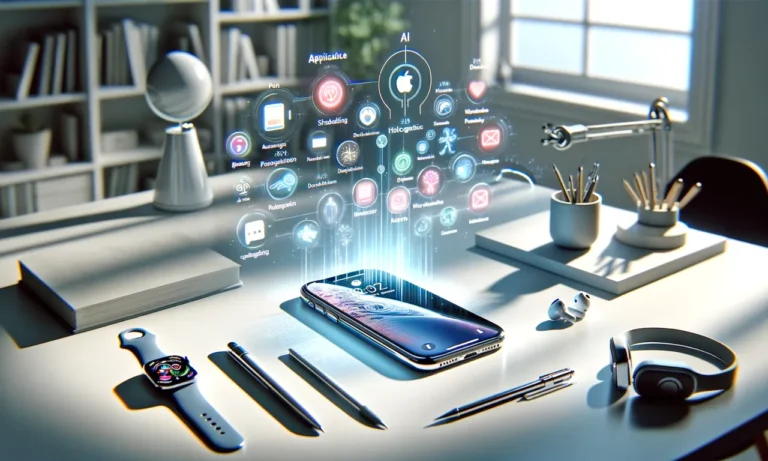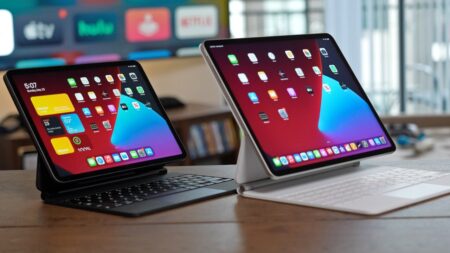In the ever-evolving world of artificial intelligence, Apple’s on-device AI is stirring up the pot with claims that it’ll leave GPT-4 in the dust. According to the minds behind the magic, a recently published paper by Apple machine-learning engineer Joel Moniz is painting a future where your phone isn’t just a smart device but a genius companion, thanks to Siri’s AI overhaul.
Moniz’s deep dive into Apple’s AI tech reveals a system that not only outshines Chat GPT in terms of performance but does so by leveraging the intimate, personal context available directly on your device. It’s also going to be great for things like how much energy AI uses and, of course, turning Siri into the most improved AI assistant out there.
The Privacy Perk
In an era where data breaches are the new normal, Apple’s strategy to process data on your device is a breath of fresh air. Reade Taylor, a cybersecurity expert from Cyber Command, praises this approach for its ability to mitigate privacy risks significantly. Unlike cloud-based computations, where data is vulnerable to interceptions and hacks, on-device AI keeps your information safely within the confines of your device.
“The privacy benefits of on-device AI cannot be overstated. During my tenure at Cyber Command, we’ve observed that decentralizing data processing to the user’s device places control back into the user’s hands, curbing the privacy risks associated with cloud computing. This model inherently limits the amount of data vulnerable to cyberattacks since the information doesn’t traverse through or reside on external servers,” Reade Taylor told Lifewire via email.
Why On-Device Makes Difference
Apple’s penchant for on-device processing isn’t new. They’ve long championed the idea, from scanning photos for CSAM on your phone to processing images through its Neural Engine. This method isn’t only about privacy; it’s about efficiency and power. By using custom hardware designed specifically for AI tasks, Apple ensures that Siri’s AI can perform at peak levels without draining your battery or compromising speed.
Siri’s AI: A Personal Assistant That Knows You
Imagine an AI that knows not just what you ask but understands the context of your screen, your emails, your photos, and even the music playing in the background. That’s the future Siri AI promises, according to Moniz’s paper. It’s about creating an AI that doesn’t just hear you but listens, comprehends, and anticipates your needs based on a holistic view of your digital life. This level of personalization is something cloud-based AIs can dream of but not achieve, given their detachment from your device’s ecosystem.
The Environmental Edge
Beyond the bells and whistles of improved performance and privacy, there’s a green lining to Apple’s on-device AI push. In a world where AI’s environmental footprint is becoming increasingly problematic, shifting the workload to low-power, custom-built chips on your device is a step towards sustainability. Michael Collins of Sphere IT Consultants highlights this as a major move towards reducing the carbon emissions associated with massive AI computations in data centers.
The Bottom Line
Apple’s bold move could very well redefine AI as we know it, making Siri an assistant that doesn’t just perform tasks but understands and anticipates your needs on a deeply personal level. With the promise of heightened privacy, improved efficiency, and a significant reduction in environmental impact, Apple’s on-device AI is a leap toward a more sustainable, user-centric digital future.
Moreover, Siri finally lives up to its promise, proving that even the most underwhelming of digital assistants can turn a corner. If Apple pulls this off, we might just be witnessing the dawn of a new era in AI, where your device isn’t just smart—it’s insightful.







